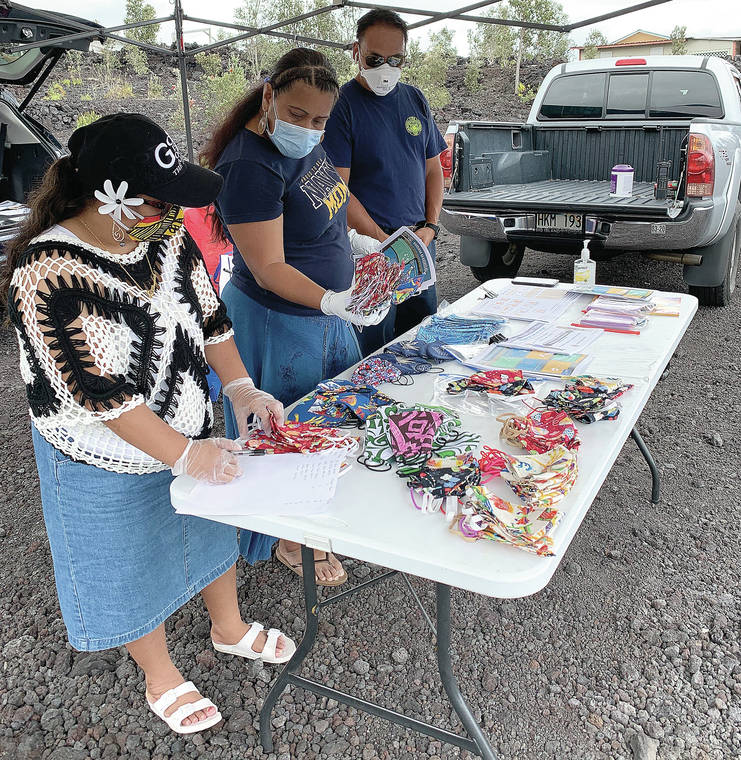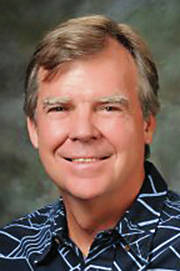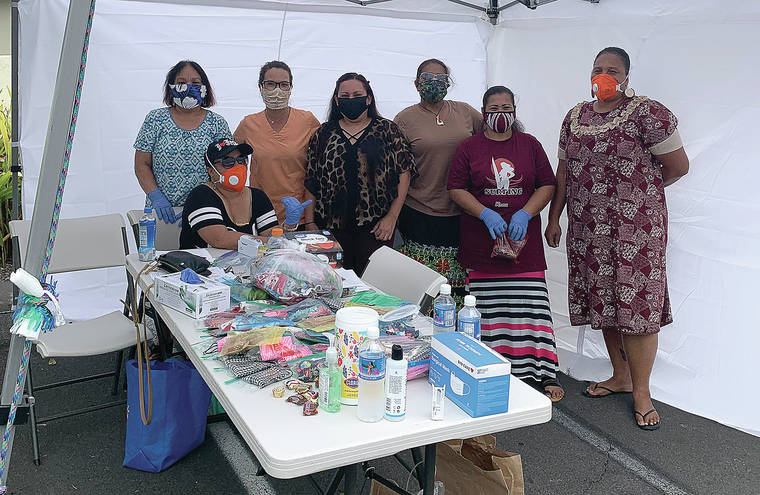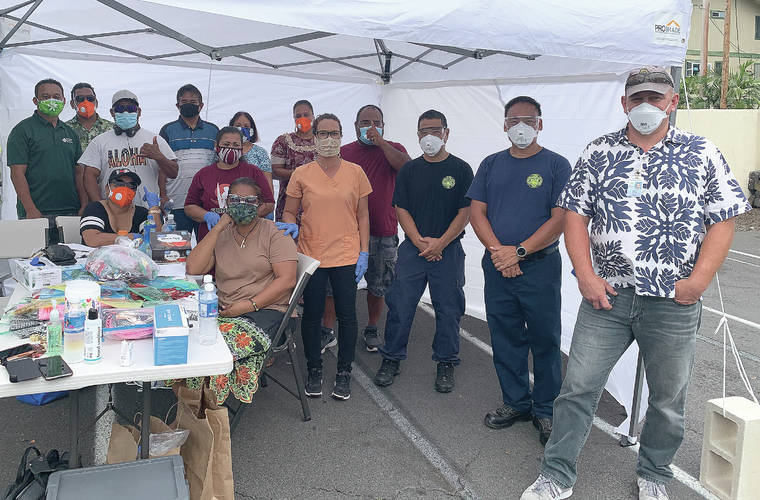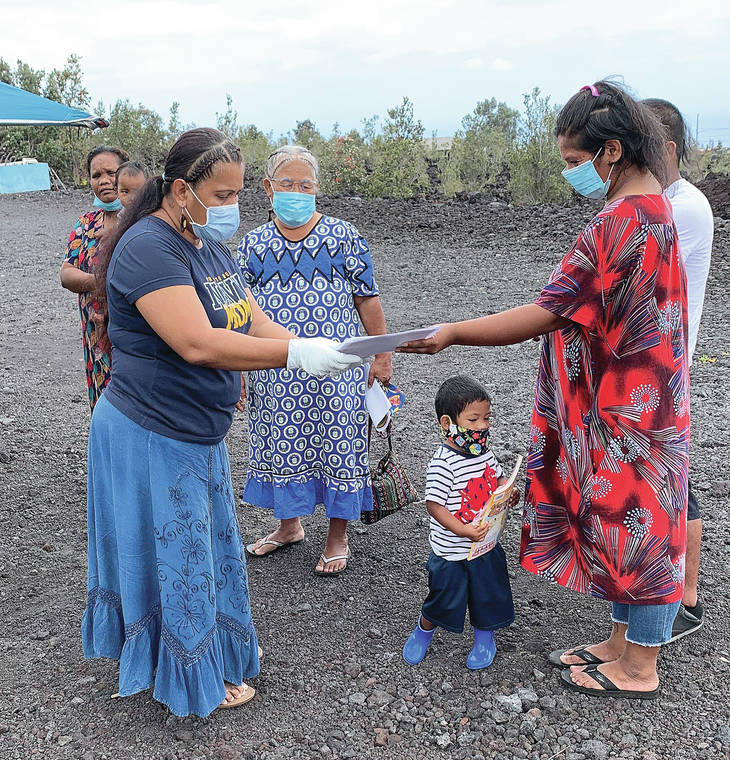The state Department of Health on Friday apologized for comments its director made about race and ethnicity while discussing the recent cluster of COVID-19 cases associated with McDonald’s restaurants in Kona.
Leaders of West Hawaii’s Marshallese community said statements made by Dr. Bruce Anderson to lawmakers on April 22 — when describing the localized outbreak that topped more than 30 cases — were hurtful, disrespectful and discriminatory.
“We feel like this is like discrimination because it’s disparity of a minority,” said Big Island Marshallese Community Association member Meetu Kelen, speaking on behalf of vice president Charles Kelen, and president Taruo Abner. “All throughout the month of March, there wasn’t any mention of ethnicity, and then, April comes, and boom, Marshallese.”
Anderson, when lawmakers implied the department was withholding information, told the Senate Special Committee on COVID-19 that some of 32 cases in the cluster included McDonald’s employees from the Marshall Islands and their families. He outlined that six or seven were traced to two different locations, adding family members were subsequently sickened, further spreading the virus.
“This Marshallese community in the Kona area … basically were in living situations where they couldn’t effectively isolate themselves,” Anderson told the Senate Special Committee on COVID-19 as reported by West Hawaii Today and the Hawaii Tribune-Herald on April 23. The state health director also acknowledged during the hearing concern about blame being assigned to one community.
The association members said on Friday, which was Constitution Day in the Marshall Islands, that Anderson’s “pinpointing” of the Marshallese community was hurtful and made the community feel marginalized. They called it a “very big mistake.”
“Now, everybody is looking at us and we’re feeling small, but we don’t want our community to feel that,” said Meetu Kelen, speaking for the association. “We want to be part of this community.”
In the wake of Anderson’s statements, members have come across unfounded and sometimes prejudiced statements from the public.
“They think we don’t know anything, that we’re just spreading the virus,” she said.
On Friday, after being contacted by the association, the Department of Health provided West Hawaii Today a statement in response to the concerns raised by members of the Marshallese community.
“The Hawaii Department of Health sincerely apologizes for any offense that may have been taken when race and ethnicity was mentioned related to those affected by COVID-19. The department was apprised of these concerns and will strive to use sensitivity when mentioning race. Please know that the intent was to express concern for those groups or populations that are disproportionately affected by COVID-19 and the need to build awareness about protecting those who may be at greater risk,” reads the prepared statement.
The department’s said examples of “recent outbreaks were described to emphasize the need to physically and socially distance ourselves when we are sick.”
“We’ve seen from national data that Pacific Islanders are affected by COVID-19 at higher rates than other groups and this is a high concern in Hawaii. We need to protect those at higher risk and ensure they have the knowledge and tools to protect themselves,” the statement reads.
The department further stated that staff is working with the County of Hawaii and community leaders to reach out to those Pacific Island communities most impacted by the disease to stem the infection.
“We encourage everyone to learn more about preventing COVID-19 at www.HawaiiCOVID19.com. Together, we can combat COVID-19 and prevent the spread of this serious and devastating disease on Hawaii Island and throughout the state and nation,” the statement closed before providing a handful of links to information.
The association after being read the statement Friday afternoon acknowledged the department’s apology, adding “they (the DOH) should apologize to the Marshallese community because we we’re the only one that were targeted — not the Pacific Islanders.”
“But, at least they realized what they did … they know they made a mistake,” Meetu Kelen said on behalf of the association. “That’s the concern around in our community: we don’t want to be singled out of all ethnicities. If they could have used Pacific Islanders that would have been better because they wouldn’t have known who — Marshallese is just one ethnicity, Pacific Islanders is composed of (people from) many different Pacific islands.”
Anderson’s comments also negatively impacted efforts by the association to protect the entire community amid the COVID-19 pandemic.
“We planned ahead to try and protect the safety of our community, because in doing that we know we are protecting the rest of the community,” said Kelen, noting that the association has been working for a couple of years with the West Hawaii Community Health Center to educate the community about health.
Since early March, the association has ramped up efforts to educate and promote awareness about the novel coronavirus among members of the Marshallese community. Outreach efforts include social media postings, visiting affordable housing and distributing masks, as well as information that has been translated.
“I believe my community has been in compliance with all the rules like stay at home, quarantine, social distancing, all of these things,” she said, noting they were able to convince some to even postpone travel due to the virus. “I just want to relay that message that we did our part, we know that we want to protect our community and in doing that, we are protecting others.”
And they’ll continue to do just that.
“It’s not going to stop us. We want to give back to the community,” Kelen said. “We realize this is Hawaii; it is not our home island, but everybody respects everybody, and we also want that respect to us.”






